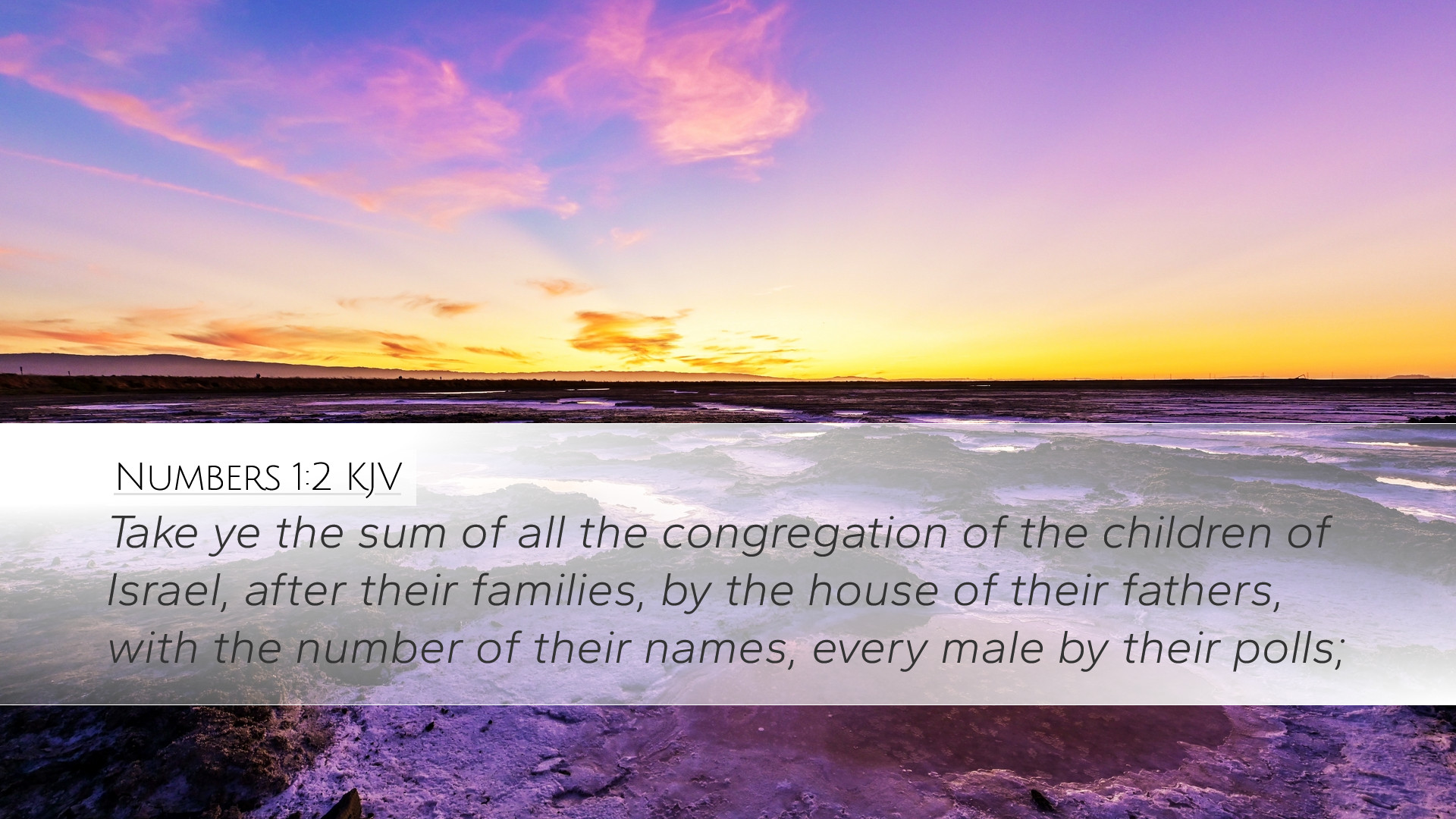Commentary on Numbers 1:2
Bible Verse: "Take ye the sum of all the congregation of the children of Israel, after their families, by the house of their fathers, with the number of their names, every male by their polls." (Numbers 1:2)
Introduction
The Book of Numbers serves as a bridge between the Exodus narrative and the establishment of the Israelites in the Promised Land. In Numbers 1:2, God commands Moses to take a census of the Israelites, emphasizing organization, accountability, and preparation for their journey.
Contextual Background
The necessity of such a census reflects the structure and order that God desires His people to maintain. The Israelites, who have endured slavery and hardship, now find themselves at the threshold of entering the land promised to their forefathers. This census is not merely administrative; it carries significant spiritual and communal implications.
Commentary Insights
1. The Command to Take a Census
Matthew Henry notes that the command to take a census underscores God's attention to detail in his dealings with his people. God desires to keep a faithful record of His chosen ones, which serves as a reminder of their identity and purpose.
2. The Importance of Families
Albert Barnes emphasizes that the enumeration is to be conducted by families, indicating the importance of family units within the community of Israel. This implies a recognition of individual and collective responsibility—each family plays a vital role in the larger congregation.
3. Male Representation
Adam Clarke points out the particular focus on males for this census, which can be understood within the cultural and historical contexts of ancient Israel where males typically held leadership and protector roles. This also speaks to God’s order in societal structures.
4. Spiritual Implications
Furthermore, the act of naming each male reflects the intimacy with which God knows His people. Each name counted in this census is a reminder of a unique individual created in God's image. The significance placed on these names resonates throughout Scripture, emphasizing the value of each person's contribution to the collective body of believers.
5. Preparation for the Journey
Henry further comments on how this systematic organization is essential for the Israelites’ preparedness for the journey ahead. The census not only assesses their numbers but also builds a sense of unity among them as they prepare to move toward the promised land.
Theological Reflections
- The Unity of the Community: The census portrays a picture of unity among the Israelites, emphasizing that every single member’s contribution is valuable. In contemporary ministry, this calls for an appreciation of each member's role in the church body.
- God’s Sovereignty: God’s command to Moses reveals His sovereignty over His people. This invites believers to rest in God’s control over their lives and communities.
- Identity and Calling: Just like the Israelites were reminded of their identity as covenant people, modern believers are called to reflect on their identity in Christ and the unique role they play in God's redemptive plan.
Practical Applications
- Encouragement for Accountability: As the church today, we ought to encourage accountability through the acknowledgment of each member's gifts and contributions.
- Organizational Structure: The importance of organization in ministry cannot be understated. Just as God provided structure for the Israelites, churches can benefit from clear roles and responsibilities.
- Valuing Individuals in Community: Every individual in the congregation matters. Pastors are encouraged to ensure that all members feel valued, recognized, and involved in the life of the church.
Conclusion
The command in Numbers 1:2 speaks volumes about God’s character and His intentions for His people. It emphasizes order, accountability, and the inherent worth of each individual in the community. For pastors, students, theologians, and Bible scholars, engaging with this verse opens doors for profound reflection on community dynamics, God’s sovereignty, and personal identity in the collective journey of faith.


